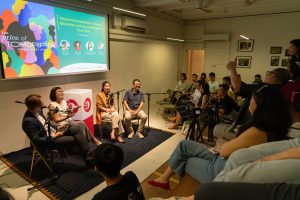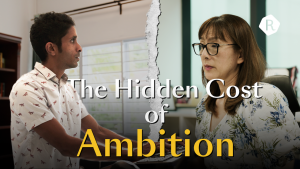Top image: Ketut Subiyanto / Pexels
It’s a canon event. Studying your teenage years away landed you your dream course. That field of study you were eyeing since your first A made you think, “Hey, maybe I am good at this!”
Slowly but surely, you find yourself dreading going to the next lecture. The late-night study cramming sessions and your abysmal grade point average serve as reminders that you might be on the wrong academic path.
We ask Singaporeans which courses they regret choosing, and why.
“AI and analytics.
I already had a rough idea of what I wanted to do since secondary school—to be in the IT sector. More specifically I wanted to focus on innovation to help others. I don’t have doubts about pursuing it per se, but I definitely regret going to a polytechnic to pursue it. Going to poly would mean it’s insanely hard for me to enter a local university if I want to continue studying computer science.
I wish people knew how hard computer science courses are. There are many brilliant minds around me and competition is really tough here. But most people think because it’s poly it’s a lot easier than being in junior college. Some would put my efforts down when I tell them I have a 4.0, saying it’s easy and whatnot but it’s okay.”
—Henry, 17
“I chose to study landscape design and horticulture, and I regret it.
Initially, I wanted a course that allowed me to continue to express my creativity while studying chemistry. The course is fun—you’re not confined to just design or science, and you can learn new things—but it’s physically tiring. I had to constantly travel out of campus for practical lessons and that was physically draining. Sometimes, I question why I pay for school fees if my lessons are outside. It’s also quite expensive. You have to buy your own art materials and cover transport fees.
I’d advise those who plan to go to polytechnic to be passionate about your field of study. Otherwise, it’s likely you’ll get burnt out very quickly. If you study specialised modules for a specific course, you should be willing to finish projects and study for exams. Putting minimal effort isn’t ideal in the long run since GPA is cumulative. Take your time to figure out what you see yourself doing in years to come. Approach current students and see what they go through in their three years.”
—Shezanne, 18
“Business studies.
I thought it would be more lucrative than film, but I’m still stuck with this job. It’s just one of those journeys that life takes you on. But if I had to push through four years of existential crises before I entered the workforce, I’d rather do something that would have been much more enjoyable.
I don’t mind it now since I ended up where I am now, but I wish I pursued something that would be more meaningful for me.”
—Renee, 28

“I regret entering the science stream in Junior College. I knew that I never wanted to pursue science. I had dreamt about being a doctor, but that already died two weeks into JC.
I suppose there was pressure to enter the science stream. There’s still this notion that you can get anywhere if you take the more ‘pragmatic’ route. On the other hand, for the arts, doors are closed for you already, which shouldn’t be the case. I mean, I guess it’s the practical choice but I ended up studying things I had little to no interest in.”
—Ben, 25
“I did both my diploma and degree in the same field—film. Up till today it’s a big regret of mine because frankly speaking, you don’t need to study film to actually do it well. All you need is observation and to be inquisitive.
Anyone can make meaningful films. All you need is a recording device of any sort and an open mind! I think TikTok has been a big testament to that.”
—Syaza, 29
“Chemistry.
Scoring lower than four As in the A Levels forced me to look outside of the more competitive courses, like medicine and pharmaceutical science. In retrospect, pursuing a pure science was torturous.
Lecture slides are so loaded with information that you will not need in your exams and finals. But lecturers pass it off as ‘good to know’. When mugging for finals, who is gonna read extra info when it’s not even tested?
It’s important to not just focus on the curriculum, but also consider the job prospects. Just because the content or syllabus looks cool and easy to study, it doesn’t mean you’ll find a decent job. You have to compare four years of university versus 50 years of employment.”
—Rachelle, 20
“Some computer science majors like me realised one thing once we started studying—it’s hard to be ‘successful’. You can only thrive if, first, the job market isn’t saturated, or second, you’re actually very good at your job”.
I shouldn’t have overly emphasised my long-term goals and neglected my short-term goals. For example, I was set on computer science to “make bank”. But when I have no clue about coding and I’m not actually interested, there isn’t much to gain.”
—Riley, 20

“Honestly, sociology can be quite a vague and ambiguous field of study. You learn everything about society, and sometimes it can feel like fluff. It can be a bit trite when people ask me, ‘What can you do with a Sociology degree?’ And most of the time, I actually don’t know.
It makes me feel a bit jaded to learn what I learn, even if I inherently enjoy it.”
—Eileen, 31
“Design.
There’s a hefty workload and lecturers may not always guide you in doing your work on softwares. You’re expected to learn them yourself through videos that were not even made by the school or teachers themselves.
There is a definite need for prior knowledge in the course. If you’d like to apply you’d need a solid foundation in design to avoid struggling.
—Asher, 18






